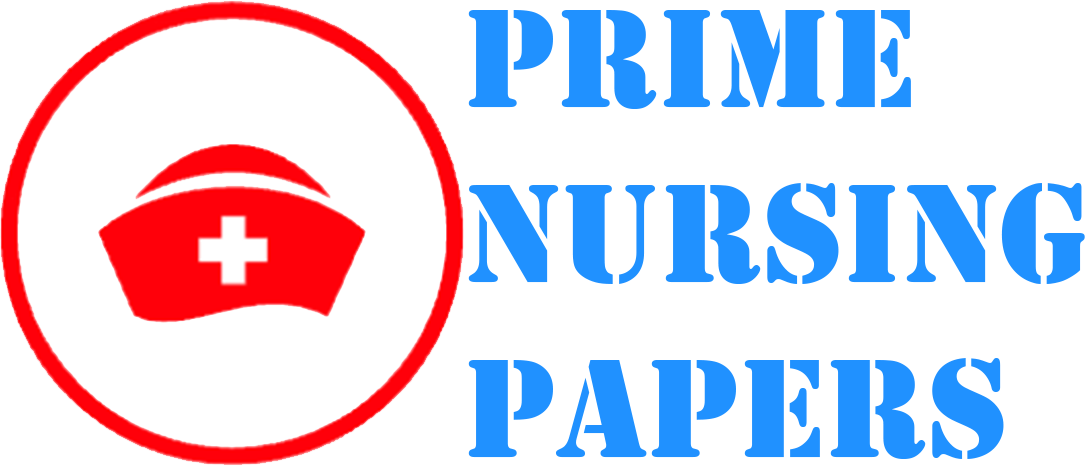What are the hardest classes in nursing school?
If you are planning to become a nurse, then this is a question that you are likely to encounter. With nursing evolving into one of the most demanded professions in America, more people are continually encouraged to join nursing schools.
In fact, statistics from a study report from a National Workforce Survey acknowledge the increasing demand and pinpoint numerous nursing practice opportunities.
However, with all these factors at play, potential applicants are commonly disturbed by the nature of studies, especially coursework such as assignments and practicals from different classes.
In this post, we discuss;
Take note that the courses/ classes that we discuss in this post have varying degrees of ‘hardness.’
Simply put;
Complexity levels are subjective. Furthermore, the position taken by this post is based on an in-house survey aligned with feedback from our nursing academic help services.
Without wasting time, let’s dive in.
What Are the Hardest Courses in Nursing School?
Based on our long-time experience handling nursing assignments, in-house surveys, and constructive conversations with nursing students, here are the hardest courses.
Human Anatomy and Physiology
Class Details
This class explores the structure and components of the human body. Through the course, students learn detailed information about muscles, ligaments, tendons, bones, nerves, and organs, as well as their locations within the human body.
Anatomy and physiology are related; hence, they are taught together.
Hardness
The hardness of anatomy and physiology classes arises from the fact that it has a lot to learn. Furthermore, most of the information is new. Based on our in-house survey, most students placing related orders admitted that the class needs more focus and study.
Survival Strategies
Here are our survival recommendations for succeeding in human anatomy and physiology class.
- Consistently use anatomy and physiology flashcards and quizzes to apply the class information creatively.
- Use mnemonics to remember important information
- Ask questions during and after class sessions
Medical-Surgical Course 1
Class Details
This course discusses different disease processes that nursing students are likely to encounter in adult patients and the application of nursing practice in most situations.
Medical-Surgical Course 1 combines information from other courses and uses it to interpret patient care.
Hardness
The main challenge of the course comes from the fact that it is one of the first nursing-specific courses that comes along with many practical situations for applying information from other foundational courses such as pharmacology, health assessment, anatomy, and pathophysiology, making it seem overwhelming.
Survival Strategies
- Identify real practice opportunities for applying the course concepts.
Pharmacology
Class Details
Pharmacology focuses on drugs or medications that a nurse is likely to encounter during practice. The course explains treatment plans, the body’s response to different types of medication, desired patient outcomes, and potential side effects.
Hardness
This class comes with a lot of information that nursing students should learn, understand, and, in some cases, memorize. In addition, they should use the information throughout their career practice to execute pharmacological treatment plans.
All these factors make the class challenging and time-consuming.
Survival Strategies
To survive pharmacology classes, you should;
- Discuss different practice quizzes with peers or members of your study group. This will assist in comprehending pharmacological information.
- Use note cards to learn bit by bit from different places flexibly.
Pathophysiology
Class Details
This class studies diseases and illnesses in the human body. It also explores the impact of these diseases and the management of the diseases and illnesses processes.
Hardness
The hardest thing about the class is that learners encounter several disease processes and complex ways of treating illnesses/ disorders. Consequently, they need to quickly process and retain a lot of information since it applies to other nursing courses and practices.
Survival Strategies
- Creatively use study guides/flashcards to comprehend complex concepts and related information.
- Use mnemonics in selected cases. For example, they can be reminders for a specific order of body parts affected by a particular disease.
- Collect additional online resources, such as video illustrations, to supplement your study guides.
Microbiology
Class Details
Microbiology refers to the study of microorganisms such as fungi, viruses, algae, bacteria, protozoa, and archaea.
Hardness
From our expert team of writers and in-house surveys, complexity when studying microbiology arises from the fact that the course comes with a lot of content, including:
- Complex names of microorganisms
- Different features and behaviors of the microorganisms
- Diseases caused by the microorganisms
This information is critical in guiding treatment for the diseases caused by the microorganisms.
In addition, microbiology class comes with a clinical that can be challenging to some students.
Survival Strategies
Here are some practical strategies for surviving the microbiology class in nursing school.
- Proactively read or skim through most of the topics before the class and clinical begin. Even though this strategy does not guarantee maximum understanding of the concepts, it helps you know what to expect from the course and clinical.
- Summarize complex information on notecards. This strategy makes it easier for you to study or remind yourself about some complex concepts wherever you are.
Health Assessment
Class Details
Health assessment is fundamental to the nursing program. Ideally, the course teaches students how to perform head-to-toe assessments and review of systems (both objective and subjective assessments).
Hardness
The common challenge about health assessment comes from the tradition that many students have never completed a comprehensive review of systems or physical assessment on a patient.
You should also know that the course has a lot of complex learning information. For instance, students should learn to listen to heart rhythms and identify other abnormal situations in the human body.
Students should also collect, analyze, and interpret patient data and information to determine existing health complications.
Survival Strategies
Some survival strategies for Health Assessments comprise:
- Joining study groups or finding a study partner. This will help in practicing assessment skills.
- Watching assessment videos on approved websites and other platforms such as YouTube.
- Set aside time for additional practice using mannequins to gauge your assessment skills.
What are the Strategic Ways to Excel in Nursing School?
Here are the top 5 strategies for excelling in nursing school
Strategy One: Proactively Organize Yourself Before the Semester Begins
Being proactive, in this case, implies that you should get organized and plan all your semester activities on time. For example, you should ensure that all your study materials are in one place or easily accessible. In addition, print vital information such as course calendar and syllabus. Also, get to know the type of assignments and practical work you will handle throughout the semester.
Strategy Two: Test and Reflect on Your Learning Style
We all have different learning styles. Some people can comfortably study in environments full of background noise, whereas others require quiet places. On the other hand, other people prefer studying in the morning, while others can study any time of the day.
The bottom line here is;
You should figure out which learning style works for you. You can take the first for weeks by trying out different learning patterns and reflecting on their effectiveness.
Strategy Three: Develop A Study Plan
Testing and reflecting on your learning style go hand in hand with developing a study plan.
Here’s the deal: after establishing what works in terms of your learning style, you must create a plan for balancing studies and other activities. The plan should also incorporate a time management strategy for studying different subjects, leisure, and extra-curricular activities.
Strategy Four: Join A Study Group
Joining a study group is an effective studying strategy, especially when it comes to upholding peer-to-peer discussion on complex topics. Through study groups, you will get to blend with different personalities, share your thoughts about most of the difficult concepts, and find a simple way to understand complex topics and concepts.
In addition, study groups encourage open-mindedness, which makes it easier to understand that you can be wrong about how you perceive different nursing topics and concepts.
Strategy Five: Identify Hobbies and Extra-Curricular Activities Outside School
Your success in a nursing school will significantly depend on your ability to balance studies and other extra-curricular activities. This means that your school life should not be all about studying but also about active participation in hobbies.
Hobbies and other non-school activities give you the breaks that you deserve to relax and rejuvenate physically, emotionally, and socially.
Final Thoughts
In this post, we have shared all you need to know about the hardest classes in nursing school. We also believe that sometimes the ‘hardness’ is subjective. This means that some of the listed courses can be easier for you. Remember to share this article with some aspiring nurses and nursing students.
Other Related & Interesting Materials:
Primary Levels of Nursing Degrees: The Complete Easy-To-Understand Guide
Top 15 Highest Paying Nursing Careers in the United States (including the best-paying states)

